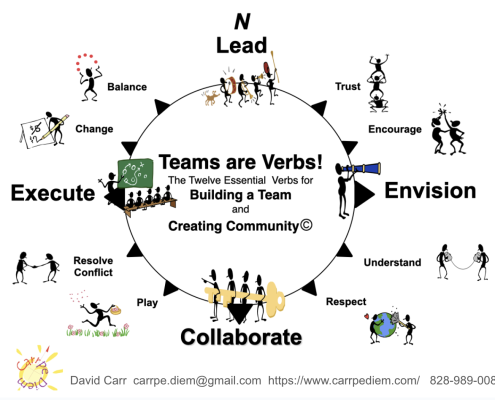My Word For 2025: Turbidity
As I have written, I do not do New Year’s Resolutions. I focus on a word. The word seems to find me! Past words include carin, civility, and selfie. The word that has chosen me for 2025 is turbidity.
“Turbidity is the cloudiness or haziness of a fluid caused by large numbers of individual particles that are generally invisible to the naked eye, similar to smoke in air. The measurement of turbidity is a key test of both water clarity and water quality.” – Wikipedia
“Turbidity is a key indicator of water quality and ecological health. By understanding its causes, measuring techniques, and management methods, we can better protect water resources and ensure safe water for all uses. Continued research and innovation will play vital roles in addressing the challenges associated with turbidity in water bodies around the globe.” – Peter Annunziato, M.Sc. (Engineering), P.E.
Hurricane Helene’s aftermath here in Western North Carolina involved a severely damaged public water system, which taught me about turbidity. It became a part of our daily language as we tracked the water quality coming from North Fork Reservoir (NFR), our primary water source. Turbidity is measured in Nephelometric Turbidity Units (NTU). According to the EPA, turbidity should be under 1 NTU. After Helene passed, the turbidity at NFR was at 30. We were without running water for over three weeks. Flushing toilets required dumping creek water into the toilet. We were without potable water for 53 days. The lack of water reminded me how much I take this fundamental life source for granted.
I recognize the turbidity in my life—the cloudiness, uncertainty, and quality—and its impact on my well-being. I see turbidity in others.
As I deal with life’s difficulties in 2025, I will ask myself these questions:
Do I understand the turbidity of the situation? What am I not seeing, hearing, or aware of? How can I better understand the turbidity? What and who am I taking for granted? Who could help me to deal with the turbidity?
Other questions that I could ponder on:
How am I being experienced by others in this turbidity? Am I being a part of the solution or contributing to the problem? Has the turbidity of the situation kept me from accepting responsibility, delaying gratification, acknowledging the truth, and maintaining balance?
When I experience joy and pleasure in 2025:
How did I overcome the turbidity to find joy? Why did I let turbidity keep me from joy?
Turbidity will remind me to undo the knots, find clarity, be more curious, and seek a clearer mind.
Let the words of my mouth and the meditation of my heart be acceptable in thy sight, O Lord, my strength and my redeemer. Psalm 19:14
Happy New Year. May all your words be thoughtful, helpful, and filled with good intent.

 In my Teams Are Verbs© circle, trust is among the twelve essential verbs for creating a team and building a community. Everything begins with trust, including relationships, processes, operations, performance, and strategic plans. Trust has always been the opening conversation in any organizational development program or retreat I facilitate. Trust is my first conversation in leadership coaching, beginning with two essential questions: Are you trustworthy? What is your evidence?
In my Teams Are Verbs© circle, trust is among the twelve essential verbs for creating a team and building a community. Everything begins with trust, including relationships, processes, operations, performance, and strategic plans. Trust has always been the opening conversation in any organizational development program or retreat I facilitate. Trust is my first conversation in leadership coaching, beginning with two essential questions: Are you trustworthy? What is your evidence?


